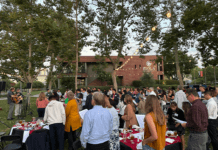Next, we need to “make gospel offers that push culture’s pressure points.” Culture is broken in many ways. A current issue is identity. As Christians, how do we think about identity in light of the gospel and coming resurrection? Here we have an opportunity to offer hope and stability in Christ that the surrounding culture does not have. Another example is busyness, seen by many as a mark of importance. That’s a cultural pressure point because Scripture affirms Sabbath and margin, so we must find ways to address the blessings and shortcomings of both.
Gospel Motivation
Lastly, Keller issues a “call for gospel motivation.” Motivation can be extrinsic or intrinsic. “Do this because you’re supposed to” is extrinsic—think of “Thus saith the Lord” statements in Scripture. Extrinsic motivation is widely used in preaching. But we also see value in intrinsic motivation: “do this because it’s beautiful, because you were born to do this.” Jesus used this with the disciples: “Follow me and I’ll make you fish for people.” When we preach, we should try to incorporate both types of motivation when we talk about the way the gospel transforms our lives.
Intrinsic motivation works well for those outside the church who view the church as a heavy-handed, extrinsically driven organization. “You’re born to this” shows those who are biblically illiterate, skeptical, or untrusting towards faith how the gospel brings hope and ultimate fulfillment in Christ. These complementary motivations reveal that God does not command an arbitrary list of things for us to do and that we are not simply called to self-fulfillment, but to a higher end of glorifying God.
The people to whom we preach all have a couple of things in common: they want to make a difference, and yet their lives haven’t turned out just like they thought they would. We can show them through Scripture how to make sense of life and to understand their purpose. The points given above can help us to do that well.
In the next article, I will talk about using contextualized language as we preach.
(Auburn Powell contributed to this article and throughout this series.)











